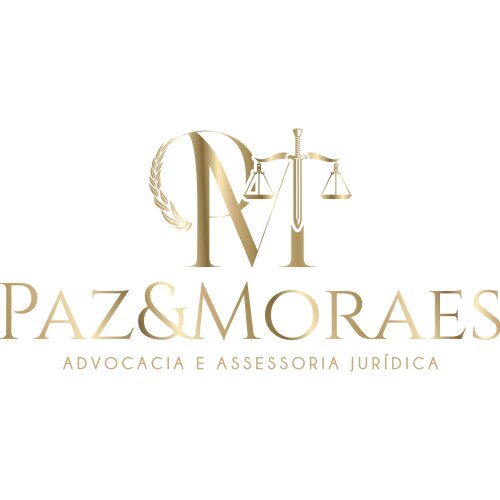Best Education Law Lawyers in Rio Branco
Share your needs with us, get contacted by law firms.
Free. Takes 2 min.
List of the best lawyers in Rio Branco, Brazil
About Education Law in Rio Branco, Brazil
Education Law in Rio Branco, Brazil, encompasses the legal principles and regulations governing the education system, including public and private educational institutions. It involves the application of federal, state, and municipal laws to ensure that education is accessible, equitable, and aligns with national standards. In Rio Branco, as part of Brazil, Education Law is influenced by the national Lei de Diretrizes e Bases da Educação (LDB), which sets the general framework for educational policy and practice across the country.
Why You May Need a Lawyer
Individuals may require legal aid in Education Law for a variety of reasons. Common situations include disputes involving school administration policies, student rights, discrimination cases, special education needs, and conflicts concerning the provision of educational resources. Teachers, staff, and educational institutions themselves may need legal counsel to navigate employment laws, contract negotiations, or allegations of misconduct. A lawyer specialized in Education Law can provide guidance and representation to effectively address these issues.
Local Laws Overview
Education Law in Rio Branco is governed by Brazilian federal laws, complemented by state and local regulations. Key aspects include the right to education, inclusion policies for students with disabilities, anti-discrimination mandates, and curriculum standards. The implementation of the Education Law also involves fiscal management pertaining to the allocation of government funds to educational institutions, teacher qualifications, and school infrastructure development. Understanding these laws helps ensure compliance and protects the rights of students, educators, and institutions alike.
Frequently Asked Questions
1. What rights do students have under Education Law in Rio Branco?
Students have the right to access free public education, non-discriminatory treatment, and appropriate accommodations for disabilities as per the Brazilian Constitution and the LDB.
2. How can parents address grievances with schools?
Parents can first raise their concerns with school administration. If unresolved, they may escalate the issue to the local Secretaria de Educação or seek legal advice for mediation or legal action.
3. Are private schools subject to the same laws as public schools?
Yes, private schools must adhere to national and local education laws, although they have more flexibility in curricula and fee structures.
4. What legal protections are in place for teachers in Rio Branco?
Teachers are protected by labor laws covering fair wages, benefits, working conditions, and protection from unjust dismissal.
5. How are education funding issues handled legally?
Disputes over funding can be addressed through administrative appeals and, if necessary, legal proceedings, often requiring advocacy or representation by specialized lawyers.
6. What special considerations exist for children with disabilities?
Schools must provide reasonable accommodations and special education services to support students with disabilities as per Brazilian law.
7. How does the law address bullying in schools?
Bullying is addressed through school policies promoting a safe environment, with legal consequences for perpetrators and intervention services for victims.
8. Can religious education be part of the school curriculum?
Yes, religious education can be offered, primarily in public schools, but participation must be voluntary in accordance with secular education principles.
9. What actions can be taken if a school's infrastructure is unsafe?
Concerns should be reported to school authorities and, if not addressed, to local government agencies. Legal action can be taken if necessary.
10. Are there language considerations in education law?
Schools must respect language diversity and provide Portuguese language instruction, the official language, while accommodating regional and indigenous languages.
Additional Resources
Resources for Education Law assistance in Rio Branco include the local Secretaria de Educação, legal aid organizations, and the Ministério Público for public legal matters. These bodies provide information, support, and advocacy for educational rights and obligations.
Next Steps
If you need legal assistance in Education Law, start by consulting with a lawyer specialized in this field. Gather relevant documents, outline your situation clearly, and explore consultations with local legal services or clinics. It's crucial to act promptly, especially if time-sensitive issues, like school enrollment or discrimination claims, are involved.
Lawzana helps you find the best lawyers and law firms in Rio Branco through a curated and pre-screened list of qualified legal professionals. Our platform offers rankings and detailed profiles of attorneys and law firms, allowing you to compare based on practice areas, including Education Law, experience, and client feedback.
Each profile includes a description of the firm's areas of practice, client reviews, team members and partners, year of establishment, spoken languages, office locations, contact information, social media presence, and any published articles or resources. Most firms on our platform speak English and are experienced in both local and international legal matters.
Get a quote from top-rated law firms in Rio Branco, Brazil — quickly, securely, and without unnecessary hassle.
Disclaimer:
The information provided on this page is for general informational purposes only and does not constitute legal advice. While we strive to ensure the accuracy and relevance of the content, legal information may change over time, and interpretations of the law can vary. You should always consult with a qualified legal professional for advice specific to your situation.
We disclaim all liability for actions taken or not taken based on the content of this page. If you believe any information is incorrect or outdated, please contact us, and we will review and update it where appropriate.








